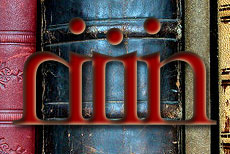
Out of the quarrel with others we make rhetoric; out of the quarrel with ourselves we make poetry.
- W.B. Yeats
2021 PRINCEMERE POETRY PRIZE
Sarah Cavar and Libby Maxey won the 2021 Princemere Poetry Prize, and Michele Parker Randall was named runner-up. Their poems appear below.
Sarah Cavar
Late Summer Dispatch
I have a walker now.
I eat grapes and
pain pills in the morning.
My father helps me
to the bathroom.
Coffee sits in my stomach
and squeezes.
I leave my room when Mom comes home,
skitter cross the hardwood hallway.
My pelvis touches tens of muscles;
with every step I call their names.
The left of my body is thick with road-rash.
My lower-back looks a couch-cushion.
There is a numb itch somewhere
deep beneath my skin.
Shelly says we can never master pain.
Don't even try.
But I am already eating and liking it
too much.
I can't submit to excess pleasure
without surrender to excess hurt.
Even as I write this poem
I flex my ankles.
I am not hungry anymore.
Ever since I was little, I have hated
my body. Today I claim
I hate it more than ever.
Yet I let my mother fix a plate
and bring it to my room;
afterward sit before her naked
while she rinses my hair. She cuts
a fresh tomato into slices
and I eat them, hatefully,
until I don't. How could I hate
what she has made.
Libby Maxey
North of Putney
The roads not to be trusted
after heavy rain,
half a lane
gone here and there, collapsed around their rusted
culverts, I follow Frost's advice and take to the woods. The trail is clear
enough to start; I do not interfere
with fate, but grant that I was meant
to rise into a field and follow down
the soggy verge. The clover is content
underfoot, and asters keep us company.
Nearby, sagging twists of brown
barbed wire define a weedy
plot, flags commending Revolutionary graves. Two tall
stones say a set of parents knew old age; their eldest saw nineteen.
Their other six are small, blank stones weathered black, sunk in green—
still markers, but memorials no more. And no one now can glean
the words the stones have dropped or tell how a single winter took them all,
or hard birth, one by one, or playing by the brook or in the marsh alone.
Thoreau
says I should have gone up garret at least twenty years ago
but having left my hillside contemplation, I am buying cheese behind a wall
of blooming hostas in a yellow hut with grapevines curtaining the door,
self-serve, scraping pennies from a bowl to make the change exact,
and I will go
further on, just to see,
along this dirt track
and the white Maremma sheepdog will follow me,
flies clustering his orange vest, and I will tell him
that he is good,
even though he should
probably be barking on the ridge with the flock in case of predators.
His whim
and mine are kin, like the wooly clouds and those that mimic
brushings from his fur;
and the goldenrod thick with Joe Pye weed where
cultivated things once were;
and the renegade streams cutting temporary beds across the public ways.
If I knew his name, I would write it here.
Such would be light labor, no small joy.
Conferring passing honor on the citizens of our haphazard days,
without the tools to shear
in slate the ultimate,
we still might gesture toward posterity,
remember as in prayer. The ancients' stories set
in stars a smaller dog, blazing at Orion's heels; two stars and no name,
not really.
A toast, then, to a wandering stranger drinking from a ditch; this, my envoi.
Michele Parker Randall
Goldfinch
after Carel Fabritius, The Goldfinch (1654)
The shadow of you and your feed box are one. Caught
because you bring fortune and health to others. Kept
for your beauty and deft skill with thimble bucket
and song. In your eyes, a light source, likely a window,
shines six feet to your right, but something darker reflects
in the center of your vision, a being—there, in front of you.
Tell me, goldfinch, when your master dies, what then?
Will you chew into the wooden bin, peck the dusky-blue
lid off its hinges to expose seed? Will you take out five
links, or four, or gnaw the brass ring off your foot,
or worse? How far will you flee? Whisper your secret
in a song—how you'll take to wing, after chains
for so long. You, watched from captivity. The wink,
I will not forget. That bolt of light on your wing.
I'll sing with you while the candle burns down.
Sarah Cavar and Libby Maxey have won the 2021 Princemere Poetry Prize. Each was awarded $150.
Runner-up is Michele Parker Randall.
Finalists are Tyler Allen Penny, Vivian Shipley, James Croal Jackson, Maureen Sherbondy, Alan Toltzis, Sara Backer, Brian Maddock, and Lauren Davis.
(Click the tabs above to see previous winners.)


Out of the quarrel with others we make rhetoric; out of the quarrel with ourselves we make poetry.
- W.B. Yeats
